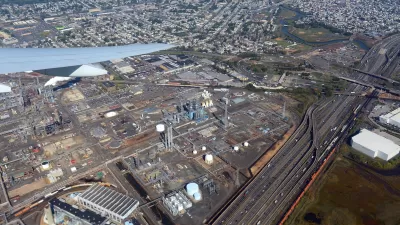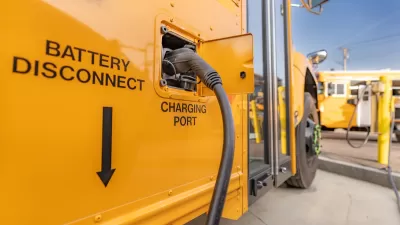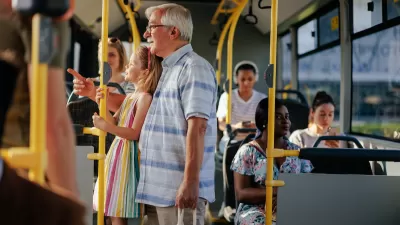Under new state regulations, Colorado transportation projects will be required to reduce GHG emissions and promote more sustainable transportation modes.

New rules from the Colorado Transportation Commission will shift the state's focus from road construction to more sustainable modes of transit in an effort to reduce greenhouse gas emissions. An article by Noelle Phillips and Jon Murray outlines the new regulations, which transportation commissioner Kathleen Bracke called a "critically important milestone." Starting February 14, future projects will be required to assess the impact of new projects on emissions and switch to cleaner alternatives if the projections surpass a set limit. "The Department of Transportation’s commissioners hope the new rules build on the state’s push to put more electric vehicles on the road while improving mass transit, biking and walking options."
The rules received pushback from critics who worry that rural, car-dependent areas could suffer disproportionately from reduced transportation funding. Business groups and some local leaders in Colorado's burgeoning Northern Front Range region claim that the rapid growth of their communities indicates a need for roadway expansions, arguing that the Commission is overstepping its legal authority.
Meanwhile, environmental groups say the regulations don't go far enough to make the drastic reductions in emissions needed to mitigate the effects of climate change and air pollution. While the state has pledged to get one million electric vehicles on its roads by 2030, environmentalists say the benefits won't accrue fast enough.

Study: Maui’s Plan to Convert Vacation Rentals to Long-Term Housing Could Cause Nearly $1 Billion Economic Loss
The plan would reduce visitor accommodation by 25,% resulting in 1,900 jobs lost.

North Texas Transit Leaders Tout Benefits of TOD for Growing Region
At a summit focused on transit-oriented development, policymakers discussed how North Texas’ expanded light rail system can serve as a tool for economic growth.

Using Old Oil and Gas Wells for Green Energy Storage
Penn State researchers have found that repurposing abandoned oil and gas wells for geothermal-assisted compressed-air energy storage can boost efficiency, reduce environmental risks, and support clean energy and job transitions.

Santa Barbara Could Build Housing on County Land
County supervisors moved forward a proposal to build workforce housing on two county-owned parcels.

San Mateo Formally Opposes Freeway Project
The city council will send a letter to Caltrans urging the agency to reconsider a plan to expand the 101 through the city of San Mateo.

A Bronx Community Fights to Have its Voice Heard
After organizing and giving input for decades, the community around the Kingsbridge Armory might actually see it redeveloped — and they want to continue to have a say in how it goes.
Urban Design for Planners 1: Software Tools
This six-course series explores essential urban design concepts using open source software and equips planners with the tools they need to participate fully in the urban design process.
Planning for Universal Design
Learn the tools for implementing Universal Design in planning regulations.
Ascent Environmental
Borough of Carlisle
Institute for Housing and Urban Development Studies (IHS)
City of Grandview
Harvard GSD Executive Education
Toledo-Lucas County Plan Commissions
Salt Lake City
NYU Wagner Graduate School of Public Service





























